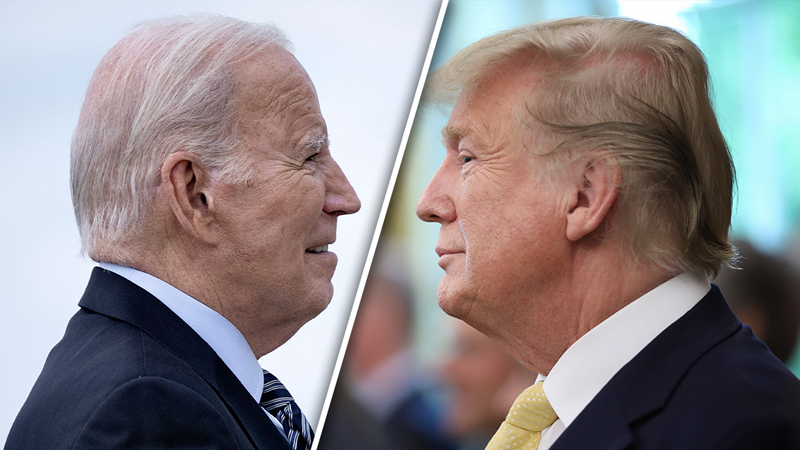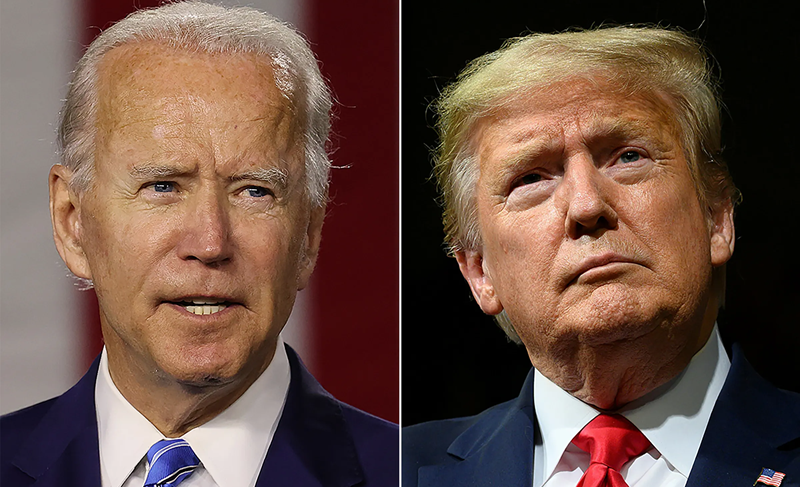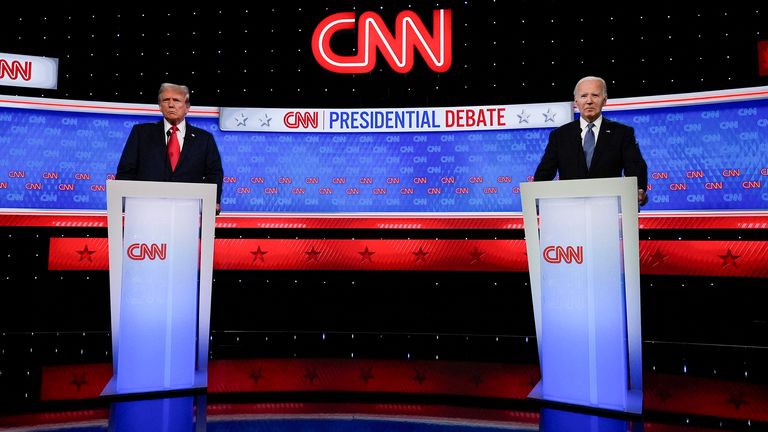The Presidential debates between President Donald J. Trump and former Vice President Joe Biden are highly anticipated events in the 2020 election calendar. The first debate took place on September 29, 2020, at the Health Education Campus of Case Western Reserve University and Cleveland Clinic in Cleveland, Ohio.
The second debate was initially scheduled for October 15, 2020, at the Adrienne Arsht Center for the Performing Arts in Miami, Florida, but was cancelled. The final debate is set for October 22, 2020, at Belmont University in Nashville, Tennessee. Each debate starts at 9:00 PM Eastern Time and lasts for 90 minutes without commercial interruption.
These debates can be watched live on every major network and cable news channel, including ABC, CBS, Fox, NBC, CNN, Fox News, MSNBC and C-SPAN. Additionally, they will be steamed live online on the websites of these networks, as well as other digital platforms such as YouTube. The debates can also be heard on radio through National Public Radio (NPR). The event is a great opportunity for voters to gain insight into the candidates’ policies, demeanor, and ability to articulate their respective visions for the country.
The debates are moderated by selected journalists. The first debate was moderated by Chris Wallace of Fox News, while the third debate will be moderated by Kristen Welker of NBC News. The format of the debates varies, with some including six segments of approximately 15 minutes each on major topics to be selected by the moderator and announced at least one week before the debate.
The Presidential debates are a significant part of the U.S. election process as they offer a platform for the candidates to directly address the American people and discuss their plans and policies. The debates also provide the public with the chance to compare the candidates’ positions on key issues side-by-side. Therefore, it is essential for voters to tune in and watch these debates to make an informed decision come Election Day.
In the midst of the COVID-19 pandemic, the debates are organized with strict health and safety measures. The candidates, moderator, and a small number of attendees are present in the venue, while millions of Americans and global viewers watch from the safety of their homes. This year’s debates hold great significance as they unfold amidst a global health crisis, a struggling economy, and widespread social unrest, making it even more crucial for potential voters to watch and understand the candidates’ perspectives and proposed solutions.
So, whether you’re watching from your living room in New York, a coffee shop in California, or online from any corner of the world, make sure to tune in to these important events. The Presidential debates are not just a tradition, but a vital part of the democratic process, giving everyone a chance to listen to the candidates and decide who they believe is the best fit to lead the country for the next four years.

Debate Schedule: Date, Time, and Location
The debate schedule is a fundamental aspect to consider when organizing a public discussion or competition. It sets out the specific date, time, and location for the event and serves as a guideline for both participants and attendees. The date is typically decided based on the availability of the debaters and must allow for ample preparation time.
It should also take into account the audience’s convenience, aiming for a day when most people would be available to watch the debate. The time also depends on several factors, such as the duration of the debate, the convenience of the audience, and the availability of the venue. It is often scheduled during the evening to accommodate a larger audience. Lastly, the location plays a vital role in the debate schedule.
It must be a place that is easily accessible to both the participants and the audience. It should also be able to accommodate the expected number of attendees, have the necessary facilities like a stage, sound system, and seating arrangement, and provide a conducive environment for a meaningful and productive discourse. The debate organizers are responsible for ensuring that all these factors are considered and finalized well in advance.
They must also communicate the schedule to all relevant parties in a timely manner to prevent any confusion or inconvenience. The debate schedule, therefore, is not just a mere timetable but a carefully planned strategy that ensures the smooth running of the event. It is the backbone that holds the event together and ensures its success.

Understanding the Debate Rules and Format
Understanding the rules and format of a debate is crucial for effective participation and fair competition. The rules may vary, but generally, they establish the structure of the debate, the time allocated for each speech, the order of speakers, and the procedure for raising points of contention.
They also define the roles of the participants, namely, the affirmative team, the negative team, and the adjudicators. The format, on the other hand, outlines how the debate will play out, often consisting of an introduction, argument presentation, rebuttal, and conclusion. Familiarizing oneself with these rules and format is essential not only to ensure adherence but also to develop a strategic approach that maximizes the potential of each segment.
It also encourages respect for the process and the other participants by ensuring that everyone abides by the same standards. Notably, understanding the rules and format also reduces misunderstandings or disputes during the debate, making the event more productive and enjoyable for all. The violation of these norms could lead to penalties or disqualification. Therefore, it’s paramount that every debater thoroughly comprehends these guidelines before entering a debate.

Is It Premature for a Presidential Debate?
The question of whether it is too early for a presidential debate is a multifaceted one, depending on various factors including the political climate, public interest, and the readiness of the candidates. One argument is that early debates may contribute to an informed electorate by offering voters an extended period to evaluate the personalities and policy proposals of those vying for the highest office.
This is particularly helpful when there are multiple candidates in the running, as it allows ample time for each to be properly scrutinized. Conversely, critics argue that premature debates could lead to voter fatigue, with the public losing interest in the electoral process due to its protracted nature. Additionally, early debates may disadvantage candidates who are not yet fully prepared or have not yet solidified their platforms.
Therefore, the timing of presidential debates is a delicate balancing act between providing comprehensive information to voters and maintaining their engagement throughout the election cycle. It’s essential to remember that these debates are a vital tool in our democratic process.
They serve to enlighten the public about the candidates and their stands on important issues, thus enabling voters to make educated decisions. The timing of these debates should be strategically considered to maximize their effectiveness and reach, ensuring a fair and democratic election process.

